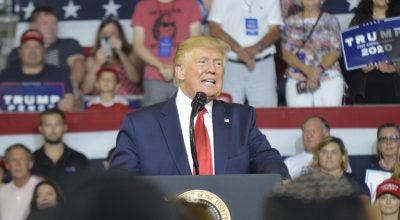Attitude adjustment
Published 12:29 am Sunday, March 13, 2011
So, you think state legislatures are required to follow their states’ opening-meeting laws?
Think again. After reading this piece, think yet again ą long and hard.
Today begins Sunshine Week, an annual initiative begun in 2002 to promote greater transparency in government. To observe Sunshine Week, which runs March 13-20, Associated Press journalists in all 50 statehouses reported on both recent improvements and the obstacles that still exist in many places.
Back to those state legislatures ą and governors’ offices. It seems, according to an AP survey, some state legislatures and some governors have exempted themselves from complying with public-records and/or open-meeting laws in their respective states.
Long ago, Kentucky legislators exempted themselves from provisions of that state’s open-meeting laws. The AP reports the Bluegrass State legislators are closing themselves into legislative conference rooms with state police officers posted at the door as they figure out how to make up a $1.5 billion shortfall.
Nevada’s Legislature is exempt from that state’s public-meeting laws because it is not defined as a “public body” as are local governments and state agencies.
The question that comes to mind in regard to the self-exempting legislatures is: What are they trying to hide?
If state law, written by a legislature, requires state agencies and local governments to conduct the public’s business in the sunshine, why do these legislative bodies exempt themselves from such scrutiny?
Some North Carolina lawmakers apparently have some problems with open government at all levels.
Those lawmakers moved toward more transparency in state government after a 2006 bribery scandal resulted in then-House Speaker Jim Black going to prison. Republicans who took control of the Legislature for the first time in more than a century this year vowed even more progress, but that promise fell by the wayside early in the session after Republican lawmakers closed a party caucus meeting with lobbyists to discuss whether to legalize video poker in the state.
Thom Tillis, state House speaker, defended the meeting as an informational session designed to let lawmakers ask questions, according to an AP report. ‘‘I guess some people just want to turn a blind eye toward input before they formulate policy. To me that doesn’t sound like good policy,’’ Tillis said last month.
What doesn’t sound like good policy is conducting the public’s business behind closed doors, no matter which political party, legislator or governor is closing those doors.
When it comes to conducting the public’s business in public, it looks like some state legislatures and governors have adopted this attitude: Do as we say, not as we do.
It’s time for those legislatures and governors to undergo an attitude adjustment.
If they don’t do that, then perhaps voters can help them adjust their attitudes about open government in the next cycle of elections.





